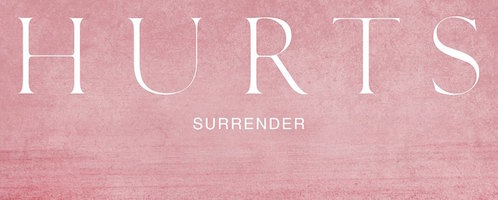Sophomore slumps have killed many a good band off, and it’s testament to how brilliant the debut Hurts album Happiness was that they remain titans of 80s-leaning pop, particularly massive in mainland Europe. After putting out the best pop debut of the past five years they found themselves treading water on 2013’s Exile. It’s taken a serious shift in tone to get back on track, abandoning the Depeche Mode seriousness in favour of a broader variety of influences ranging as far as Stevie Wonder and The 1975.
Surrender is the eclectic, immensely fun result. The key to reinvigorating the Hurts template has been to ramp up their tempos, and “Some Kind of Heaven” and “Kaleidoscope” are resultantly as danceable as anything in their catalogue. “Nothing Will Be Bigger Than Us” meanwhile shows that the duo’s prior Calvin Harris collaboration has rubbed off on them rather well, and for it not to be a future single would be lunacy. The counterpoint to this is that the melancholic songs are far more impressive than on Exile, where the sheer number of them dragged things down – here, the tumultuous Eastern-tinged stormer “Rolling Stone” and bittersweet parting track “Wish” stand out and thereby shine.
There’s no distinct lull to proceedings, even with the slow-burning trumpet funk of “Lights” rubbing up against “Slow”, which is as stately as one would expect. If there’s something that some will find difficult to swallow it’s the occasionally clumsy lyrics, Theo Hutchcraft’s visual style sometimes throwing up clunkers like ‘there’s a hole in my parachute as big as my heart’ from “Wings”. On the other hand, his vocal performance is as confident and classy as ever, while partner in crime Adam Anderson draws together musical tapestries that make the most of each of their songs.
A common complaint of modern pop is its lack of subtlety and nuance, and while this is probably the most brash Hurts album it still outstrips the vast majority of the competition in those areas. Surrender throws an awful lot of ideas at the wall and a surprising number of them stick, and that it’s the more optimistic moments that work best is more shocking still. On their third full-length, Hurts have found happiness and thereby finally escaped the shadow of Happiness. It’s a long awaited worthy follow-up.
Review by Michael Bird
